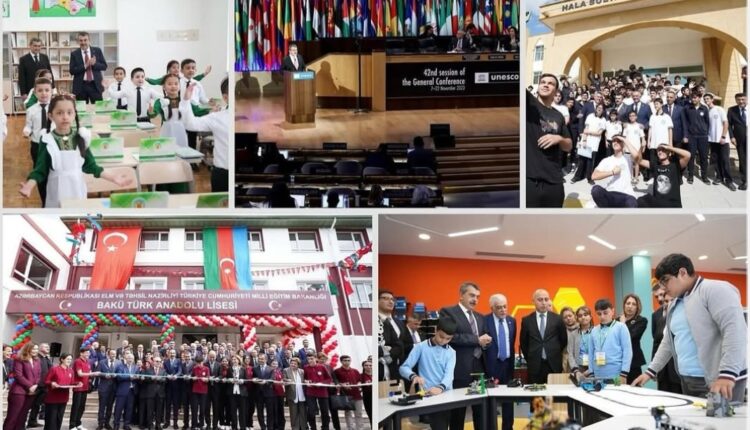Türkiye Strengthens its Global Influence through Education Diplomacy
The initiative continues to strengthen cultural interaction and mutual understanding.
Istanbul: The Ministry of National Education (MoNE) of Türkiye is currently implementing 350 educational agreements with 125 countries, reinforcing the country’s soft power in the international arena through comprehensive education diplomacy initiatives.
Led by MoNE, Türkiye’s education diplomacy strengthens the country’s cultural partnerships and fosters lasting connections across the world. To establish educational relations within a legal framework, the Ministry has signed a total of 350 agreements with 125 countries to date. Within this scope, cooperation agreements and memoranda of understanding in the field of education have been implemented across a wide geographical area, ranging from the Turkish Republic of Northern Cyprus to Qatar, from Greece to Libya, and from the Republic of the Congo to Mongolia.
Read more: Google Gemini Gets a Useful Upgrade for Students and Professionals Alike
New Agreements and Strategic Partnerships
Over the past two years, Türkiye’s global education network has been expanded by signing 16 new agreements with 14 countries. A protocol covering teacher training, professional development and special education has been signed with Syria. Türkiye and Moldova have launched a cooperation initiative for the establishment of the Recep Tayyip Erdoğan Türkiye–Moldova College. Strategic agreements have also been concluded with countries such as Ukraine, Mongolia, Azerbaijan, Kazakhstan and Kyrgyzstan in various fields ranging from higher education to vocational training. As part of the talks held with the Turkish Republic of Northern Cyprus, Turkmenistan, and Uzbekistan, new Turkish schools are set to be opened.
65 Turkish Schools in 13 Countries
As of June 2025, Türkiye has 65 educational institutions operating in 13 countries abroad. More than 12,000 students are enrolled in these institutions, where 679 teachers are employed. Among the new schools to be opened, the Recep Tayyip Erdoğan Türkiye-Moldova College and the Karabakh Turkish School stand out. These institutions not only strengthen Türkiye’s educational footprint but also play a strategic role in cultural diplomacy.
Strengthening Cultural Ties through the “Sister School” Program
Since its launch in 1994, the Sister School Program has paired Turkish schools with partner schools in 64 countries. To date, 1,229 partnerships have been established, 712 of which are with schools abroad. The initiative continues to strengthen cultural interaction and mutual understanding.
Foreign Students and Cultural Integration Programs
MoNE continues to promote inclusive education through adaptation classes designed for foreign students, the PIKTES+ Project, and Turkish Language and Culture courses.
During the 2024–2025 academic year, 2,174 students in eight countries received Turkish language and culture education, with plans to expand the program to 11 countries in the coming period.
Expanding Influence through International Projects
The Directorate General for Lifelong Learning leads adult education, social integration, and employment-oriented initiatives through projects conducted with EU and UN agencies. Projects carried out under Erasmus+, EPALE, UNICEF, UNDP, and UNHCR partnerships enhance Türkiye’s capacity and visibility in education diplomacy.
“Education Diplomacy”: A Key Component of Türkiye’s Global Vision
The projects and agreements carried out by the Ministry of National Education demonstrate that Türkiye has evolved into a global actor in education, not merely a regional one. Ministry officials stated that, in the coming period, they aim to further strengthen and institutionalise Türkiye’s education diplomacy through new agreements and to promote inclusive education models in the international arena.




Comments are closed, but trackbacks and pingbacks are open.